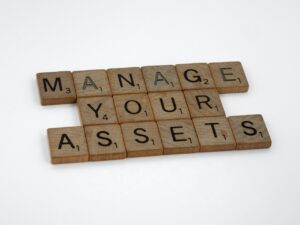6 Recession Proof Industries

Written by R.A.Stewart
When a recession occurs self confidence is reduced and spending is reduced. Some industries do well during recessions because whatever happens during the economy we all still have basic physical needs to meet.
Those industries rely on discretionary spending money are those that are most likely to be affected during a recession. In a period of belt tightening people will cut back on non necessities such as travel and the like.
A recession means job losses and while no industry is 100% recession proof there are some that will get through the recession better than others.
Here are some industries which are expected to do better than average during a recession.
- Dairy Farming
Dairy products are basic grocery items and if you have the skills and the aptitude then you will be rewarded for your diligence. Retail outlets whose customers are farmers will buck the recession.
It is only the price of dairy products which will affect retailers. If farmers have the money to spend they will spend it.
Company to note: PGG Wrightsons
- Healthcare
Health care will always be in demand, more so with an ageing population. If you are involved in this industry then you will always have opportunities for employment. The number of retirement villages is increasing in line with the increasing ageing population and this provides opportunities for investors with many of them being listed on the New Zealand stock exchange.
Company to note: Somerset
- Consumer Basics
There are basic items which are always in demand irrespective of what the economy is doing. Basic food items, toothpaste, toilet paper, shampoo, shaving foam, laundry detergent, and the like are recession proof.
Company to note: Any company which deals in these products.
- Pet Food & supplies
People will still spend money on anything related to pets during a recession because pets still need feeding. There is an increase in the number of cats and dogs handed to the SPCA during the cost of living crisis but there is still a lot of demand for pet supplies irrespective of what shape the economy is doing.
- Utilities
There will always be a demand for utilities because it is a fixed expense in every household.
Companies to note: Genesis Energy, Mercury, Mighty River Power, and Contact Energy + others.
- Alcoholic Beverages
There will always be a demand for alcoholic drinks and has been for the past 2000 years and beyond.
This list is by no means complete. There are dozens of industries which are recession proof; it is just a matter of choosing one which best suits your skill set if you are in the process of choosing your vocation or changing the one you already have. It is a good idea to add a few strings to your bow by working in different types of jobs or careers.
As far as the share market is concerned, it provides some insight into which companies are likely to survive the cost of living crisis better than others.
This article is of the writer’s experience and opinion and may not be applicable to your personal circumstances.
Disclaimer: I may receive a small commission if you sign up for sharesies or coinbase.
Www.robertastewart.com
#recessionproof #personalfinance #retirementsavings

















